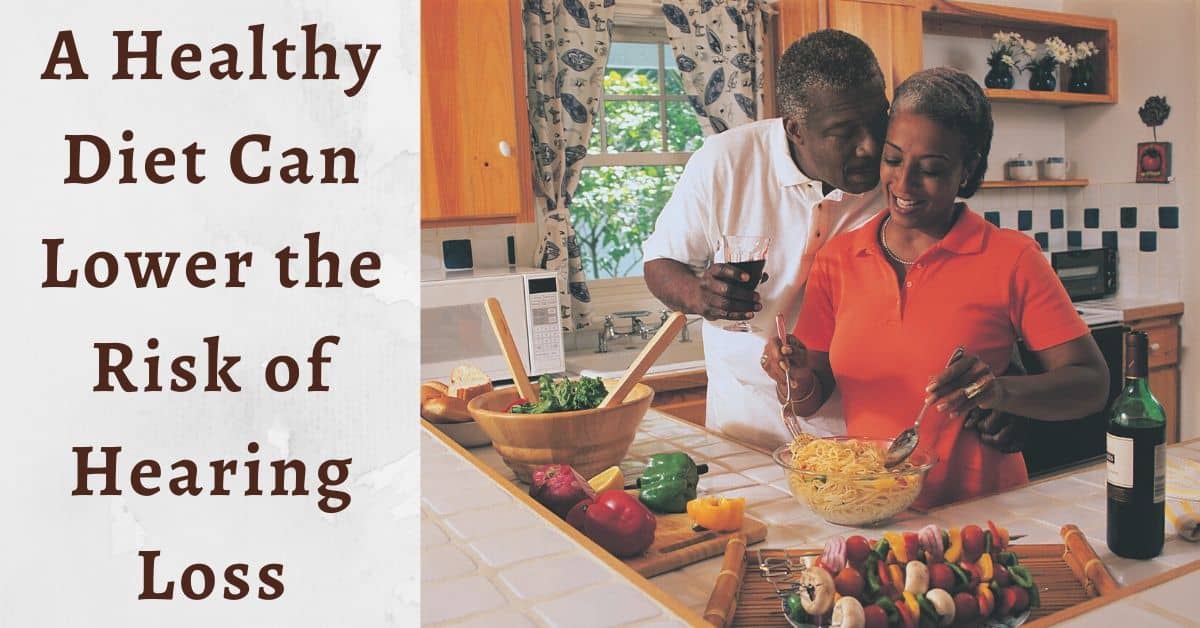
We know that a good diet directly supports our well being, but did you know your diet can also have a beneficial effect on your hearing health? While no one nutrient holds the key to good health or alleviation of disease, eating a variety of healthy foods regularly can help reduce your hearing loss risk.
Study finds hearing loss slowed with a healthy diet
A recent study which was published in the American Journal of Epidemiology found that you can reduce the onset of age-related hearing loss by adhering to certain diets. This is not the first study of its kind – a range of studies have already found a link between diet and hearing health. But the researchers at Brigham and Women’s Hospital wanted to rely less on self reported data and more on the specific hearing sensitivities that change over a long period of time. To do so, they set up testing sites at nine locations across the country and instructed audiologists to track changes in hearing thresholds for people over time.
The researchers also used participants ‘ 20-year food intake histories and analyzed whether their eating patterns were comparable to the three widely recommended healthy diets: MedDiet, AHEI-2010 and DASH. Conformity to each of these diets was correlated with a successful aging, along with a reduced risk of cardiovascular disease, diabetes and other chronic diseases.
The results revealed that women who followed the diets most closely had a 30 per cent lower probability of mid-frequency sound hearing loss. They also had a 25 per cent reduced risk of a decline in high-frequency hearing.
The types of nutrients we should eat
Since Dr. Curhan and her team studied mainly white women between the ages of 50 and 60, there is a need for further research to draw more concreate conclusions. However, the study offers a valuable reminder that our diets can have a bigger effect on our hearing that we would realize. Here are some specific nutrients that can help you.
Omega-3
Omega-3 fatty acids have anti-inflammatory powers and are usually found in oily fish such as salmon, tuna and sardines. These help to reinforce the many blood vessels in our inner ear. Researchers found that people who eat two or more servings of fish a week are 42 per cent less prone to developing age-related hearing loss compared to those who regularly do not eat fish. If you’re not a fish fan, omega-3 fatty acids can also be found in foods like flaxseed, walnuts, soybeans and spinach.
Potassium
Potassium controls your fluids and your blood. Your inner ear as a network of fluids, so potassium has a role in keeping your hearing healthy. Potassium can be found in bananas, melons and oranges and in vegetables such as spinach, beans and tomatoes.
Zinc
Zinc is an important mineral that keeps your immune system intact and develops and fixes body tissues. It is found all over the body in cells but the inner ear is where much of the zinc can be found. Eat chickpeas, lentils, beans, nuts, eggs, dairy products, dark chicken and red meat and get your fill.
Folate / Folic Acid
Folate, also known as vitamin B-9, helps our bodies generate red and white blood cells. A 2003 study found that folate levels in patients with sensorineural hearing loss were substantially lower than those who with regular hearing. To get more in your diet, try eating spinach, asparagus, beans, broccoli, eggs, liver and nuts.
Vitamins A and E
A 2011 study found that vitamins A and E were the most important antioxidants for hearing health. People with the highest consumption of vitamin A decreased their hearing loss risk by 47 per cent and those who foods rich in vitamin E lowered their hearing loss risk by 14 per cent. For more Vitamin A, try including almonds, spinach, sweet potatoes, sunflower seed, Swiss chard, and olive oil into your diet. Vitamin A-rich foods comprise carrots, kale, spinach, broccoli and eggs.
Magnesium
Magnesium can help in protecting against hearing loss associated with noise. Researchers have found that magnesium and a mixture of vitamins A, C and E can lower the free radicals produced by loud noise and protect the fragile cells in the inner ear from harm. Foods rich in magnesium include a wide range of fruits and vegetables, dark chocolate, avocados, almonds, tofu, seeds and whole grains.
Swift Audiology
A healthy diet is just one way of promoting healthy hearing. Since hearing loss can slowly happen, you may not consider hearing loss until it begins to disrupt your life. That’s why it is important to have a regular hearing check. This is quick, straightforward and painless, so please contact us today if you think you may be experiencing signs of hearing loss.
